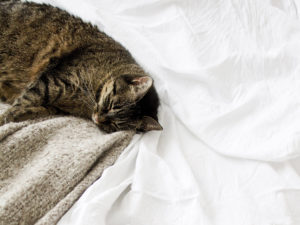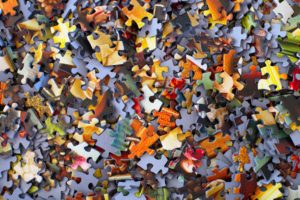Maintaining a strong mental state in the face of COVID-19
The COVID-19 coronavirus pandemic has continued to unfold globally, affecting thousands of people. During this time of difficulty, it’s normal for people to experience a wide range of feelings and reactions, including stress, fear and worry.
Today’s blog post will cover a few measures that we can take to overcome stress in these uncertain times.

Coping with stress
Here are some common reactions you might have to news surrounding COVID-19:
- Feeling stressed and overwhelmed
- Anxiety, fear, or worry
- Sadness, loss of interest in usually enjoyable activities
- Feeling helpless
Experiencing such emotions are understandable when faced with this immense challenge. There has been loss of life, large changes to our way of life (e.g. in study, work, and social life), and also disrupted plans due to travel restrictions or social distancing measures. We are naturally concerned for our own and our loved ones’ health and safety.
During these times, talking to someone you trust can help. Even with social distancing measures in place, there are still alternatives for communication like social media and video calls.
Speak with friends and family about your concerns and how you feel in this situation. Time spent with supportive contacts can bring a sense of comfort and stability to you.
See more: 14 reasons why anxiety can cause problems and how we can cope
Staying at home for extended periods of time
Here in Singapore, the Government has implemented a “circuit breaker” measure which aims to stem the rise of community spread. As a result, citizens are urged to stay at home, and companies are implementing Work From Home policies.
How might we spend this additional time at home without feeling bored, restricted and stressed?
No matter what, we have to maintain a healthy lifestyle. The first thing we have to take care of is our health, especially with a pandemic around. Keep a healthy diet, ensure proper sleeping habits, and do whatever exercise is possible within the confines of your home.
Some ideas for exercise that you can do at home include: yoga, stretching, exercise bikes, and bodyweight fitness!

Staying sharp mentally as well as physically
In addition to keeping a physically healthy lifestyle, we also have to factor in our mental well-being. It’s natural for our minds to think of the usual activities that we cannot do at the moment. We need to have a conscious shift and focus on the activities that we still can do.
- Watch educational videos online and learn something
- Reading books
- Listening to podcasts
- Try out a new hobby or skill (e.g. cooking new dishes, doing some art, learn a language, learn how to sew).
- Mindfulness and meditation
During these times, don’t turn to smoking, alcohol or other narcotics to deal with your emotions. If you feel overwhelmed, talk to a trusted counsellor, or close contacts that you can trust. Do your best to maintain a strong mindset, and the crisis will pass eventually.
Dealing with information overload
In today’s hyper-connected age, we rely on information quicker than ever and have so much more access to media and news at our fingertips. While this means that we are constantly up-to-date with new information, the constant influx of news — often bad — can easily build up emotional stress and feelings of worry in us.
Limit your worry and stress by reducing the time you and your family spend watching or listening to media coverage, including social media, that you might find upsetting. Hearing about the pandemic repeatedly can be emotionally draining over time.
It’s also okay to take breaks from conversations with others about COVID-19 and suggest talking about other topics. Sometimes, we might get pieces of gossip through friends or WhatsApp chat groups. The gossip could be extremely sensationalized, and meant to provoke more fear in us. Stick to trusted sources of information: government news sources, and WHO (World Health Organization). Do not get unnecessary panic from rumours.
Become a beacon of strength

The coronavirus COVID-19 outbreak has brought lots of stress and uncertainty to people around the world. Draw on skills you have used in the past that have helped you to manage the adversities of the past, and use those skills to help you manage your emotions during these times.
We must always remember that this doesn’t just affect us, but every single individual in the community we are in, and every citizen of our country. We cannot be selfish and only take our own health into account, but also be compassionate and be aware of those around us.
In essence, be a responsible citizen and a role model for others. As much as possible, stay home and don’t go out. When outdoors, stay aware of those around you and help those in need. There’s no need to stigmatize others, for example those working in the healthcare industry. Furthermore, do not panic-buy and hoard items unnecessarily from supermarkets. Trust that there are adequate measures in place to protect us.
If we can all harness our strength as a community in these times, we will come out of this stronger than ever. Stay safe, and stay healthy.
Sources:



